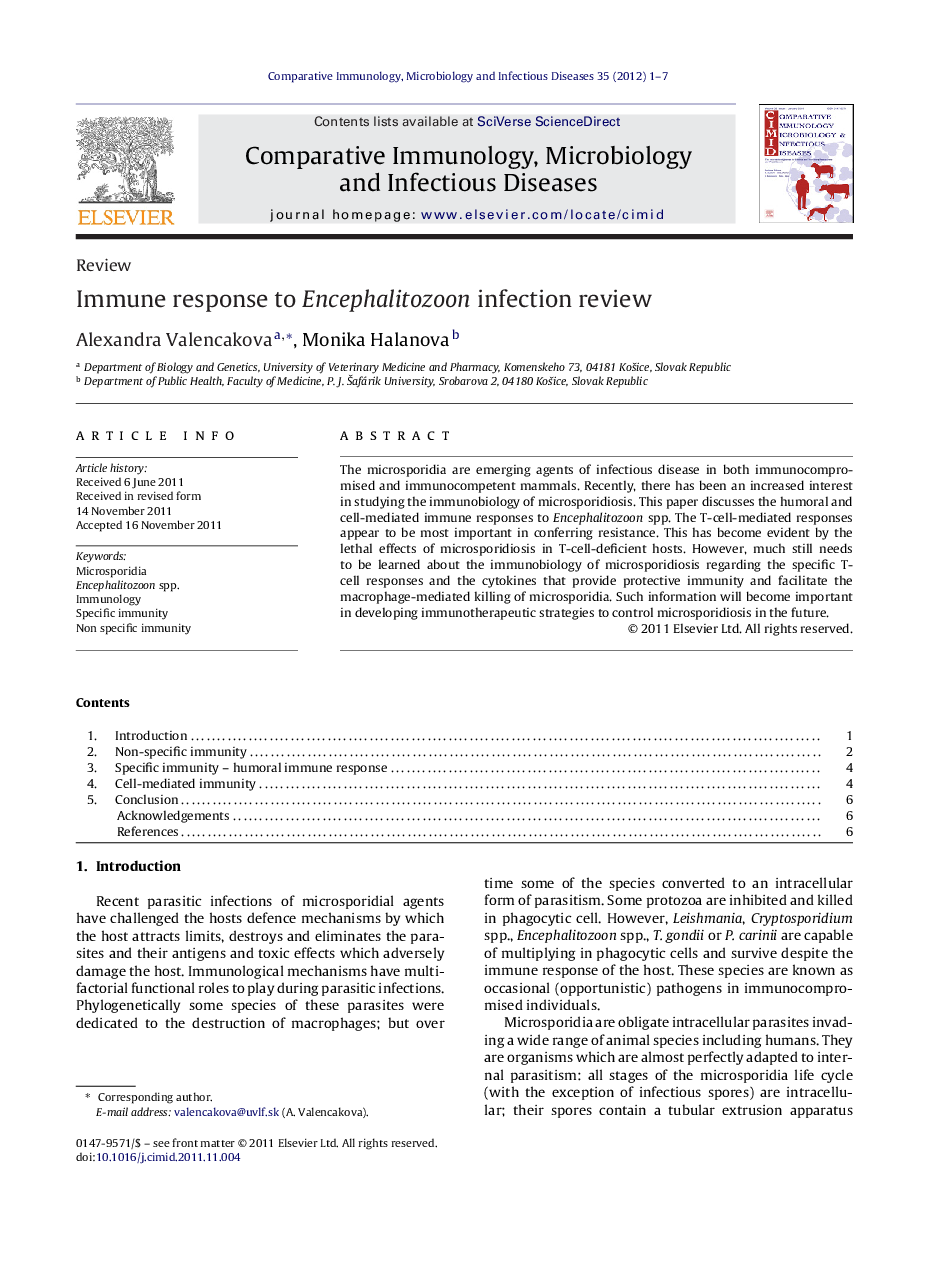| Article ID | Journal | Published Year | Pages | File Type |
|---|---|---|---|---|
| 10971361 | Comparative Immunology, Microbiology and Infectious Diseases | 2012 | 7 Pages |
Abstract
The microsporidia are emerging agents of infectious disease in both immunocompromised and immunocompetent mammals. Recently, there has been an increased interest in studying the immunobiology of microsporidiosis. This paper discusses the humoral and cell-mediated immune responses to Encephalitozoon spp. The T-cell-mediated responses appear to be most important in conferring resistance. This has become evident by the lethal effects of microsporidiosis in T-cell-deficient hosts. However, much still needs to be learned about the immunobiology of microsporidiosis regarding the specific T-cell responses and the cytokines that provide protective immunity and facilitate the macrophage-mediated killing of microsporidia. Such information will become important in developing immunotherapeutic strategies to control microsporidiosis in the future.
Related Topics
Life Sciences
Agricultural and Biological Sciences
Animal Science and Zoology
Authors
Alexandra Valencakova, Monika Halanova,
